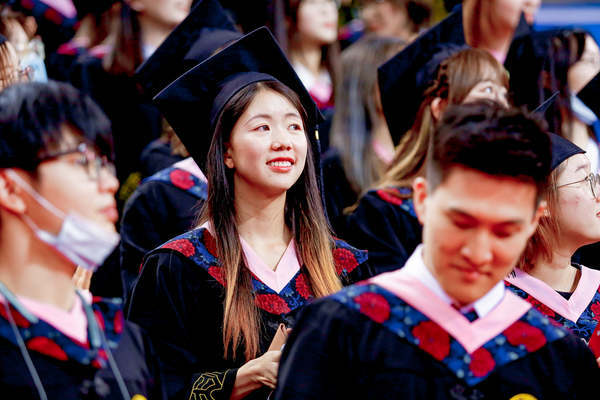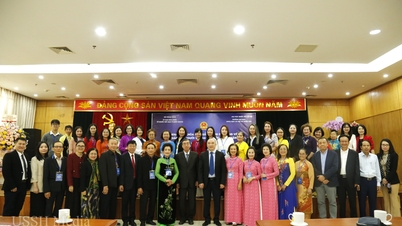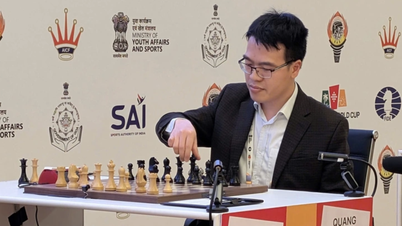At the scientific forum "Training and research in social sciences and humanities in the new context" recently organized by the University of Social Sciences and Humanities (Vietnam National University, Hanoi ), experts and university leaders frankly pointed out the difficulties that are occurring in training and research in social sciences today.
Associate Professor, Dr. Vo Xuan Vinh, Director of the Institute of History, pointed out that currently, at the Vietnam Academy of Social Sciences, most research is political and scientific tasks, with little socialized revenue, leading to difficulty in mobilizing resources.
Another issue is the perception of the role of the industry. Some opinions ask: “How much percentage of GDP does the social sciences and humanities contribute?”. According to Associate Professor Vinh, this is an inappropriate approach.
“The contributions of social sciences and humanities lie in basic, fundamental research, policy consulting research… which are very important and cannot be measured by GDP in the usual way. For example, historical knowledge helps to give policy warnings; studies on ethnicity and religion help stabilize society or timely forecasts help the state avoid conflicts and instability.
“If we only look through the GDP lens, social sciences and humanities, especially basic research, will not have a chance to develop,” Mr. Vinh said.
He said the Vietnam Academy of Social Sciences has recommended that management agencies change their thinking so that this field is recognized for its proper role and mission.

From a training perspective, Associate Professor Dr. Truong Dai Luong, Chairman of the Council of Hanoi University of Culture, said that currently, the labor market poses challenges in training in social sciences and humanities.
For example, at Hanoi University of Culture, there are majors such as Family Studies, Ethnic Minority Culture, Heritage… which are very good and meaningful, but the labor market does not use them, students do not have jobs after graduation, forcing the school to temporarily stop training. Some other traditional majors such as Cultural Studies have very few students recruited because candidates are not interested.
Faced with this reality, Hanoi University of Culture has shifted from pure research training to interdisciplinary research.
For example, instead of training in Cultural Studies, the school opens programs such as Media Culture, Foreign Culture, Cultural Industry, etc. These majors both attract students and meet the practical needs of the labor market.
"If the program is not built in an interdisciplinary direction, suitable to practical needs, it will certainly be eliminated," said Mr. Luong.
Meanwhile, Professor Hoang Anh Tuan, Principal of the University of Social Sciences and Humanities, said that there are specific majors that, although difficult, cannot be abandoned because they are of national mission.
He gave an example of maintaining a year of training for 5 bachelors in archaeology, besides having a department/faculty, internships and practice also require a lot of investment. Therefore, the average cost to train these 5 students is about 15 times the tuition fee.
However, the school remains steadfast in its goal of providing in-depth training in fundamental sciences, while expanding interdisciplinary areas to keep up with social development.

Faced with the above challenges, Prof. Dr. Nguyen Van Khanh, former Principal of the University of Social Sciences and Humanities, recommended a change from research to training to connect with practice.
“In the past, if we only trained in basic theoretical fields and issues, now schools must focus on researching and applying those theories to serve economic, social and cultural development. If we only do 'dry' research such as the viewpoints of Marxism-Leninism, philosophy... without connecting with practice, it will have little meaning. Training and research fields must focus on practice, serving social needs,” said Professor Khanh.
According to him, the training program must be restructured in an interdisciplinary direction, integrating small and narrow majors, and building new majors to meet the needs of scientific and practical development. “If we only keep the old majors, the demand for learning will decrease more and more, and at some point we will have to close them,” he said.

As Chinese universities climb the world rankings, Western degrees are no longer as highly regarded by employers as they once were.
Source: https://vietnamnet.vn/nhieu-nganh-xa-hoi-hay-y-nghia-phai-dong-cua-vi-thi-truong-khong-dung-2462919.html




![[Photo] Prime Minister Pham Minh Chinh meets with representatives of outstanding teachers](https://vphoto.vietnam.vn/thumb/1200x675/vietnam/resource/IMAGE/2025/11/15/1763215934276_dsc-0578-jpg.webp)



































































































Comment (0)